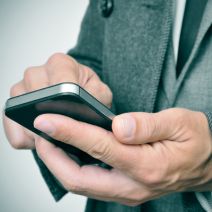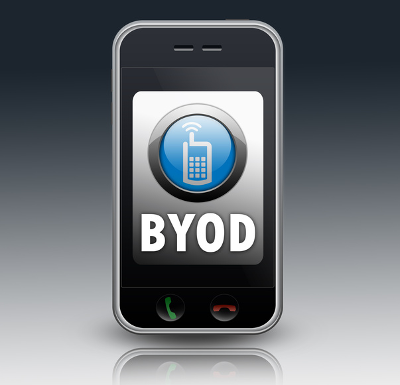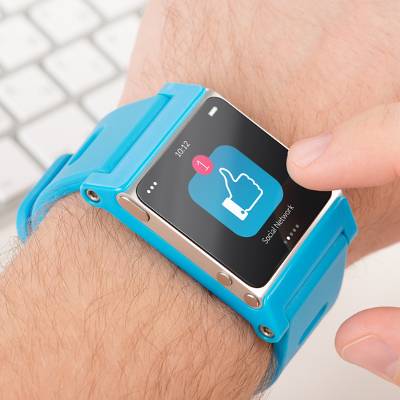Bring Your Own Device (BYOD) is a solution that has grown more popular over the past decade or so, primarily because more employees already own devices capable of running work-related applications. The employee gets to use a device they already know and love, while the employer saves money from the cost of equipping that employee. That said, the security risks associated with BYOD can undermine an ill-prepared implementation and open the door to potential legal action.
Directive Blogs
We've all been there. You're trying to quickly find that one photo from your vacation, or that important PDF for work, and you end up endlessly scrolling through a digital wasteland of screenshots, random downloads, and duplicates. Our smartphones have become extensions of ourselves, but without proper care, they can quickly turn into cluttered, inefficient tools that cause more frustration than they solve.
Bring Your Own Device, or BYOD, is a common approach for businesses that want to take advantage of mobile technology to kickstart productivity. Instead of supplying each individual employee with company-owned devices, businesses allow employees to use their own devices for work-related purposes. While this is great on the budget, it’s only really effective (and safe) if the employee prioritizes security on their devices; otherwise, it’s a liability.
With technology becoming more mobile, the way we interact with tech has changed considerably. Now that dial-up has evolved to broadband and cellular networks have dramatically improved, technology has allowed people to become more connected than ever. Your business can improve its communications and operations with the right mobile technology.
With mobile devices being such a big part of doing business, It’s crucial that your business has a plan to manage them. Many times this comes with a lot of hand-wringing. One of the biggest issues is whether or not the business invests in their employee mobility or if they simply demand that they gain use of employee-owned devices. In today’s blog we’ll go through the mobile management strategies of Bring Your Own Device (BYOD) and Corporate Owned, Personally Enabled (COPE).
Let’s face it; running a business can be expensive, and taking any measures possible to mitigate those costs can have huge benefits for your bottom line. One way companies are minimizing costs is by implementing a Bring Your Own Device policy, or BYOD, to allow employees to use their own personal devices for work purposes. We’re here to help you do so without putting security at risk.
There’s no denying that running a successful business comes with its fair share of costs, and many would argue that some of these costs are anything but fair. As such, it makes sense to try and minimize your operating expenses by any sustainable means. Let’s go over one such cost-saving measure you can implement—Bring Your Own Device policies—and address how to do so without shortchanging your business’ security in the process.
One of the most effective means for a business to shave a few dollars off its budget (and potentially boost employee engagement, for that matter) is to adopt something called a Bring Your Own Device policy—effectively, an agreement that allows their team members to access business-owned documents and files on devices they personally own to get their work done. While these policies have been shown to be very effective, they also need to be carefully considered so they can be adopted appropriately.
No doubt you’ve noticed the increased use of smartphones. No matter where you go, people are on their phones. Sometimes they are using them in places you wouldn’t even imagine. For the modern business, employee smartphone usage can be a major pain in the side. Today, we’ll go into how smartphone usage helps and hurts a business and how to go about keeping employees from being on their phones for large chunks of the workday.
Bring Your Own Device is a hot trend in today’s business environment, as it creates a ton of opportunities for businesses to cut costs. However, this is only true if you implement a BYOD policy that your organization can take advantage of, as it creates considerable problems for your unprepared businesses.
There are a lot of benefits to implementing a Bring Your Own Device policy for your business. Firstly, people will be able to use the devices that they’ve purchased, and have grown accustomed to, for work. Moreover, many times they can access company information with the use of easy-to-use mobile apps, providing them with more opportunities to be productive. In fact, many organizations that install a BYOD policy see the majority of their workforce work more, which creates more opportunities for revenue growth, and ultimately, higher profitability of the endeavor.
Bring Your Own Device, or BYOD, has grown significantly in the business environment. You might even have a couple practitioners of BYOD in your own office; people who use their personally-owned devices for work purposes. However, just like any potential benefit, it also has drawbacks that need to be considered. How can you implement BYOD without experiencing too many of its drawbacks?
Do you let your employees bring their own devices in for use on your company network or Wi-Fi connection? If so, we’re sure that they love the freedom that you provide for them, but we must warn you of the dangers that this can bring to an otherwise careful business. We’ll discuss some of the benefits, as well as the pitfalls, of allowing your employees to use personal devices in the workplace.
BYOD, or Bring Your Own Device, policies have proven to be a highly effective way for companies to save money. However, these policies need to address some of the shortcomings, potential costs and issues that comes with employees bringing and using their own devices could present to your business--not to mention security concerns.
Mobile devices are so common nowadays that you’ll likely encounter your employees bringing multiple devices to the office on a regular basis. Little do they know that everything they bring with them, from their Fitbit to their laptop, poses a security threat. Of course, the threat level from each individual device will depend on what it is exactly, but the point stands that the less you do about mobile device security now, the more danger your organization will be in down the road.
Today’s business environment is no longer just a drab gray office setting filled with workstations lining the wall. The office is the coffee shop across the street, or the airport lobby while you’re waiting for your plane to arrive. It’s the client’s office while you’re out on a business trip, or the venue for a business conference where you make valuable connections and exchange contact information. The office has gone mobile, and your business needs to adapt to this change.
 Bring Your Own Device, or BYOD for short, is an important business trend that’s growing in popularity. BYOD allows users to bring their own devices to the workplace and use them for their everyday duties. While we often discuss the security issues that BYOD presents, it’s crucial to also mention the many benefits that BYOD offers for small and medium-sized businesses.
Bring Your Own Device, or BYOD for short, is an important business trend that’s growing in popularity. BYOD allows users to bring their own devices to the workplace and use them for their everyday duties. While we often discuss the security issues that BYOD presents, it’s crucial to also mention the many benefits that BYOD offers for small and medium-sized businesses.
 With the aid of technology, today’s workforce is more connected and faster at responding to problems than ever before. While this is great for productivity, it presents challenges for business owners to offer their workers current solutions that won’t hold them back. For many old-school employers, this may require a new way of approaching technology.
With the aid of technology, today’s workforce is more connected and faster at responding to problems than ever before. While this is great for productivity, it presents challenges for business owners to offer their workers current solutions that won’t hold them back. For many old-school employers, this may require a new way of approaching technology.
 Mobile devices have taken the workplace environment by storm, and you’d be hard-pressed to find anyone who doesn’t use their smartphone, laptop, or other device for work purposes. This trend, called Bring Your Own Device (BYOD), helps employers spend less on new solutions, but it also presents a risk that needs to be managed: the Internet of Things (IoT).
Mobile devices have taken the workplace environment by storm, and you’d be hard-pressed to find anyone who doesn’t use their smartphone, laptop, or other device for work purposes. This trend, called Bring Your Own Device (BYOD), helps employers spend less on new solutions, but it also presents a risk that needs to be managed: the Internet of Things (IoT).
 Mobile devices are changing the way that businesses look at the workforce, but one of the main draws (and possibly detriments) is how the industry continues to change rapidly as new solutions are made available. In order to maximize your business’s efficiency with mobile devices, it’s important to consider these three trends shaping the way that organizations handle modern mobile device management.
Mobile devices are changing the way that businesses look at the workforce, but one of the main draws (and possibly detriments) is how the industry continues to change rapidly as new solutions are made available. In order to maximize your business’s efficiency with mobile devices, it’s important to consider these three trends shaping the way that organizations handle modern mobile device management.
 A trend that’s taking the office by storm is BYOD, or Bring Your Own Device. These policies entail workers bringing their own devices to the office and using them for work-related purposes. While this opens up many avenues for enhanced productivity and efficiency, being too laissez faire with your BYOD policy could instigate some problems later on, primarily in the security field.
A trend that’s taking the office by storm is BYOD, or Bring Your Own Device. These policies entail workers bringing their own devices to the office and using them for work-related purposes. While this opens up many avenues for enhanced productivity and efficiency, being too laissez faire with your BYOD policy could instigate some problems later on, primarily in the security field.
 Employees bringing their own mobile devices into the workplace (BYOD) is one of the hottest business technology trends. BYOD has been shown to increase productivity, but when it’s implemented improperly, it can leave your business vulnerable to security threats. How do you motivate employees to stick to your BYOD policy in order to ensure the safety of your company’s data?
Employees bringing their own mobile devices into the workplace (BYOD) is one of the hottest business technology trends. BYOD has been shown to increase productivity, but when it’s implemented improperly, it can leave your business vulnerable to security threats. How do you motivate employees to stick to your BYOD policy in order to ensure the safety of your company’s data?
 The trend of employees bringing in their own mobile devices to the office and using them for work purposes (BYOD) is growing rapidly. In fact, a new report from Juniper Research forecasts that by 2018, more than one billion employee-owned devices will be used in enterprises. A trend this big means that organizations have to take BYOD seriously.
The trend of employees bringing in their own mobile devices to the office and using them for work purposes (BYOD) is growing rapidly. In fact, a new report from Juniper Research forecasts that by 2018, more than one billion employee-owned devices will be used in enterprises. A trend this big means that organizations have to take BYOD seriously.
 In our last blog article, we introduced the IT trend of employees bringing in their personal devices to work (BYOD). We looked at 5 ways BYOD can help your business, but BYOD is not without risks. In part 2, we will cover five risks BYOD brings to your company's network and what you can to do manage them.
In our last blog article, we introduced the IT trend of employees bringing in their personal devices to work (BYOD). We looked at 5 ways BYOD can help your business, but BYOD is not without risks. In part 2, we will cover five risks BYOD brings to your company's network and what you can to do manage them.
 As the mobile device market is booming, more employees are bringing in their own device to work (BYOD). Advantages to BYOD include a workforce that's mobile, increased employee satisfaction, and more; but using personal devices comes with risks, and business owners must consider these risks before allowing BYOD in their office.
As the mobile device market is booming, more employees are bringing in their own device to work (BYOD). Advantages to BYOD include a workforce that's mobile, increased employee satisfaction, and more; but using personal devices comes with risks, and business owners must consider these risks before allowing BYOD in their office.
 There's a tidal wave of different consumer devices available on the market; smartphones, tablets, laptops, netbooks, and much more. Employees love their devices and love bringing them to work. If your company is allowing for Bring Your Own Device (BYOD), then you will want professional support to get the most out of it.
There's a tidal wave of different consumer devices available on the market; smartphones, tablets, laptops, netbooks, and much more. Employees love their devices and love bringing them to work. If your company is allowing for Bring Your Own Device (BYOD), then you will want professional support to get the most out of it.
 Many businesses are discovering how great it is for employees to use their personal devices to accomplish work. BYOD has been proven to improve productivity and worker satisfaction; but like so many great things, these BYOD benefits are in danger of being shut down as employers are becoming concerned about being sued. How can you still benefit from BYOD while being protected from lawsuits?
Many businesses are discovering how great it is for employees to use their personal devices to accomplish work. BYOD has been proven to improve productivity and worker satisfaction; but like so many great things, these BYOD benefits are in danger of being shut down as employers are becoming concerned about being sued. How can you still benefit from BYOD while being protected from lawsuits?
A new technology trend is equipping workers with high-powered mobile devices, like tablets, smartphones, laptops, and more--at the worker's own expense. Employees are bringing their tech into work in order to be more efficient and productive while at the office. Is your organization ready for the Bring Your Own Device revolution?


